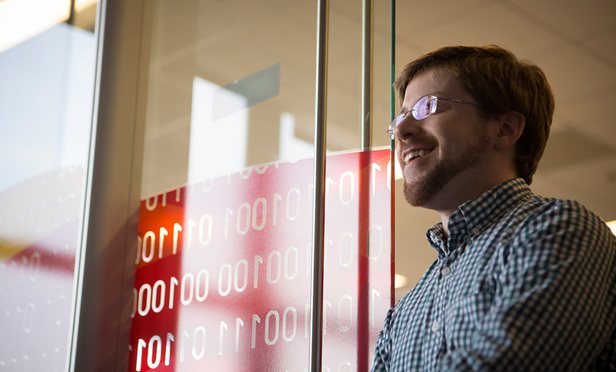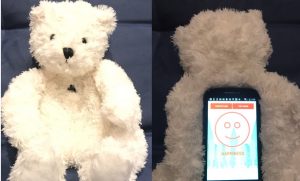 Cornell law professor James Grimmelmann
Cornell law professor James Grimmelmann
The BuddyBear looks much like any other cuddly teddy bear from the front, except for the small camera embedded in its furry white chest.
Turn the bear around, however, and the screen mounted to its back displays emoticons that translate the emotions of people in real time. The BuddyBear is the handiwork of two master of laws students and two computer science students in Cornell University’s Manhattan-based technology program. It’s designed to help autistic children decipher emotions—a concept many struggle with.
The camera on the front of the bear takes photos of people, then the software analyzes their facial expression to determine their emotion. Children then see that emotion, in emoticon form, displayed on the back screen.
The team hasn’t tested their BuddyBear prototype with autistic children yet, but the array of pediatricians and behavioral specialists they’ve consulted with love the idea, said Adam Felix, an LL.M. graduate who worked on the project this spring.
“They all said it was a good idea because the teddy bear makes the technology much more approachable for these kids,” said Felix, a lawyer from the Czech Republic. “They aren’t scared of it.”
Felix was among the 12 students in the inaugural cohort of Cornell’s LL.M. in law, technology, and entrepreneurship—a first-of-its kind program designed to not only prepare lawyers to advise startup clients, but gain experience building their own startups.
In the case of BuddyBear, Felix and his LL.M. classmate weren’t simply advising their computer science partners on the legal aspects on the project. They were helping design the product from the ground up.
“We are actually building products that are fully legally compliant from the very beginning,” Felix said. “In normal legal life, we’re playing catch up with the client and trying to work backwards to make their products compliant.”





